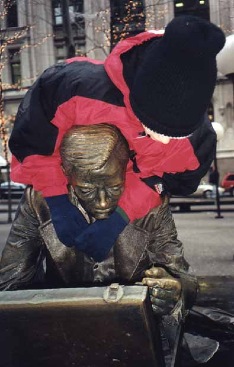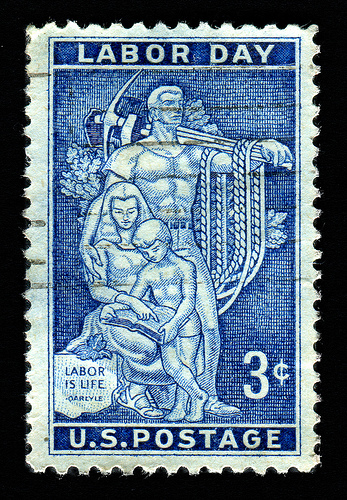
Q: Why is it so hard to buy at the top?
A: That’s how you know it’s the top.
Who’s listing actual fee-simple dirt? Could life get any better? Representing hypothetical cubes of air-space amidst spookily-vacant concrete canyons? Not so much.
I just heard that J.P. Morgan is calling its people back to the office, so maybe vertical cities are not dead yet. My bet runs the other way, and, doubling-down, that employers incur liability by requiring attendance in dangerous locales.
Cinemas and shopping malls were dying, anyway. So, too, cities? A way of thinking of this urban exodus is simply as a matter of economic obsolescence: What is generally the oldest and most decrepit segment of the housing stock is being abandoned.
That pushes up prices in the suburbs, don’t it? “Gimme land, lotsa land, under smoggy skies above – and don’t dance so close to me!”
I thought we were pushing the top of this market turn before Coronavirus hit. That foreign import was killing big cities even before the rioters started burning them down. Accordingly, there won’t be a top in Phoenix for a while, where March of 2020 may be the high-water mark for decades for many great American cities.
But the thing about market tops is, they advertise themselves: Rapid price jumps, low inventory, bidding wars, waived contingencies, escalator clauses, solemn pre-dawn ungulate sacrifices, etc.
Again, not there, but very much here – and everywhere suburban parcels abound.
Here’s another characteristic of market tops, one we were all very well paid to overlook in the housing bubble of this century’s toddler years:
The real estate market tops when even the most marginally-prepared borrowers compete for and get mortgages.
What’s a bubble? It’s when the bike messengers and coffee shop waitresses come down to Wall Street with their mattress money. Wait, that’s a dated image. How about this? A bubble is when lifelong renters become very temporary homeowners. No, that was the last time. Try this: A bubble is when forty-year-old adolescents emerge from mom’s basement just long enough to sign socially-distanced closing docs in a title company’s parking lot.
My point would be that, Read more

 Cathy and I watched The Path to 9/11 on television tonight. I had forgotten that we were in Metro New York for the Turn of the Millennium. My father lives in Connecticut, and we went there that year for New Year’s Day. The photo you see is my son crawling all over a bronze statue of a stock broker in Liberty Park, directly across from what was then the Merrill Lynch Building — on December 30, 1999.
Cathy and I watched The Path to 9/11 on television tonight. I had forgotten that we were in Metro New York for the Turn of the Millennium. My father lives in Connecticut, and we went there that year for New Year’s Day. The photo you see is my son crawling all over a bronze statue of a stock broker in Liberty Park, directly across from what was then the Merrill Lynch Building — on December 30, 1999.

 Propositions Three and Seven from
Propositions Three and Seven from 



 I did a
I did a 
 Perhaps not. It’s more about the relocation process as such, rather than the boots on the ground house-hunting. Even so,
Perhaps not. It’s more about the relocation process as such, rather than the boots on the ground house-hunting. Even so,